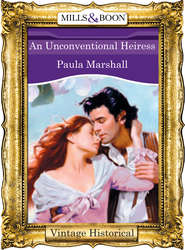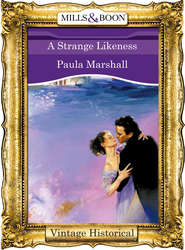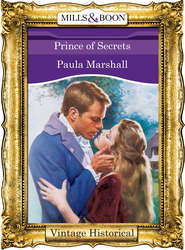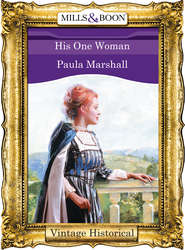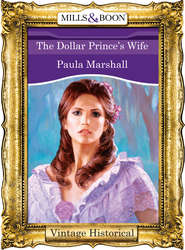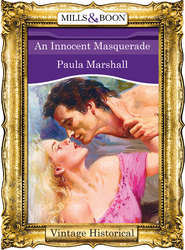По всем вопросам обращайтесь на: info@litportal.ru
(©) 2003-2024.
✖
The Astrologer's Daughter
Настройки чтения
Размер шрифта
Высота строк
Поля
‘No!’ she exclaimed, the colour deserting her face. ‘I hope I have misunderstood you. You wanted me when Nan…’ And she paused, as Robert threw himself on his knees before her.
‘I have wanted thee since I first saw thee as a maiden of sixteen on the day I married Nan. God forgive me, when she died I could only think that it freed me for you. It has been torture for me to see thee about my house. I had not meant thee to know, but when you refused me, my tongue betrayed me.’
He seized her hand and the words of love were pouring out at last, and now Celia knew more than ever that he—and his tainted love—was not for her. Nan’s shadow would lie forever between them.
‘Oh, accept me, I beseech thee. Do not let me burn longer. I will buy thee a silken gown, make thee a fine chain, jewels for thy fingers. Robert Renwick’s wife will be as fine as any lady of the court. You cannot turn away such love.’
Celia pulled her hand away. ‘Please stop, I beg of you, Master Renwick. To learn of this makes my mind more fixed than ever. I can never marry you. Nan was my dear friend. Her ghost would lie in our bed reproaching me.’
It was hopeless and, knowing that it was hopeless, he lost all self-control. ‘What, have you a lover, then, mistress, a secret one, that you should treat a good man so? No wench who looks as you do could truthfully prate of staying single. Was the court gallant who came here yesterday with my lord of Buckingham a man to please you more? Or is it the Duke himself you have an eye to? He hath haunted thy father’s house. Was it for thee he came?’
‘For shame.’ Celia was at the door. She had heard a hundred songs which told of the bitterness of unrequited love, but to see that bitterness exposed, to feel it lashing about her as though he had taken a whip to her was more than she could endure. ‘My nay is my nay, Master Renwick. My father did not breed me to be a weak fool. There is no other man in my life, save in thy sick imagination. I will leave you, Master Renwick. You have had your answer.’
Her small hand on the door latch was covered by his large one. ‘Why, mistress,’ he said, panting slightly, ‘never think that this is the end of the story. Robert Renwick hath always got what Robert Renwick wants, and this is no time for him to begin to lose that reputation. If I find you have lied to me, why, mistress, I make a good friend, would have made thee a good husband, but I am a bad enemy. Think on that.’
Celia wrenched her hand from under his and was through the door, sobbing slightly between fright and disgust. The calm which had ruled her life until this day was shattered quite. She had seen the face of naked lust in one whom she had thought was free of such a vulgar passion, had learned how little she knew of the true face of the world, and it had frightened her.
She fled to the sanctuary of her room.
Celia Antiquis walked with Kit Carlyon that day. She was with him when he woke with a thick head. He rarely drank heavily, and seldom gambled, having little with which to gamble. But at Whitehall on the night of the first day that he had met her he sat down to Basset and lost. The old saying went, lucky at cards, unlucky in love. He staggered to his bed, hoping that the reverse held good.
He had supposed that to win his bet he would also need to win something which he did not want—a woman’s love. He had thought that the astrologer’s daughter would be such that he could woo and win her and toss her away without a thought, as he had tossed away Dorothy Lowther.
Aye, and that was the worst of it. He saw Dorothy Lowther that morning and felt only shame at the sight of her. What! Had one walk on a pleasant afternoon among the herbs and shrubs and flowers with a sweet-faced virgin at his side unmanned him quite? He was run tearing mad. He would forget her—but he could not.
The day was fair, the sun shone, the King was not capricious. The Privy Council met in the morning. In the afternoon the court walked in the open, down an alley whose fruit trees were flowering early. The talk was of the coming war with the Dutch.
The Duke of York had left to join the fleet, Charles Berkeley with him. Berkeley was a friend of Kit’s. It might be more truthful to say that he was a friend of everyone, universally loved by all, from the King downwards. He had written a song before he had gone and early in the afternoon the King called on Kit to sing it—his reward a game of tennis with his monarch in the cool of the day.
The role of courtier fretted Kit. But what else could a landless, penniless man do, who knew no trade save war? For that reason, Latter beckoned. A home of his own, an occupation to see his small lands well-run. Like many others, the late Civil War between King and Parliament had deprived him of his inheritance. At first, to serve the King, adorn his court, had seemed some recompense but, as the years drew on, he found himself needing security, his own home—a wife, children around him.
But to gain Latter, find that home, he must betray Celia Antiquis, and Buckingham, clever devil that he was, had thought of the one way to bribe Kit to do for him what he had failed to do for himself. Being Buckingham, he could not fail—he would succeed through Kit.
Kit finished Berkeley’s merry ballad. ‘To all you ladies now on land’, and Celia Antiquis popped into his mind again. The King saw his melancholy and, being a melancholic man himself, had compassion for him. ‘Why, Kit man, what ails thee? Hast taken a fever? Is there none here to please thee, haul thee from the dumps?’ He waved a hand at the assorted beauties sitting or standing in the sun. His queen had accompanied him and held court from a bench beside an urn of unseasonally early flowers.
Kit shrugged and laid down his guitar. ‘Nothing that a game of tennis will not cure, sire.’ And that was true, he knew. Action always dissipated melancholy for, in the violent doing, the mind disappeared and the body took over.
‘Buckingham tells me that you and he hied to the astrologer, Antiquis, yesterday and that he hath invited him here, and his daughter, too. He says that the daughter practises his trade, knows his mysteries. Is that the truth, or Buckingham’s extravagance talking?’
Kit looked at the King, his master. He was wearing a royal-blue coat with a silver sash and trimmings; his petticoat breeches were of a deeper blue and a scarlet garter bound each stocking. He had a spaniel on his lap and toyed with its ears—as he was toying with Kit’s in a different sense.
‘The truth, sire? The maid is as knowledgeable as the father.’
‘And is she fair?’
Kit’s eyes were on Charles again. Was this mere idleness, or had the King the thought that a new sensation might be found in toying with the astrologer’s daughter instead of a noble beauty? Actresses had graced his bed, Nell Gwyn and Moll Davis; why not a maiden from the city streets?
‘Very fair,’ he said at last.
The King began to laugh. ‘Why, I verily believe I have found the cause of Kit Carlyon’s melancholy. And is she chaste, as well as fair, and has she refused Buckingham and looked sideways at the good self? Fie, for shame, you cannot have wooed her properly. Kit Carlyon to be bested by an unknown virgin?’
What to say? For he knew that Charles was truly toying with him, that Buckingham had told him of the bet and all the court were agog to see whether a cit’s daughter could do what the maids of honour could not, and deny Kit Carlyon what he wished.
Kit picked up his guitar again, stared at the scarlet ribbons which decorated it and thought how often its music had helped him to a worthless victory over women whose virtue had long vanished. What true pleasure lay in that?
‘The maid scarce knew that I was with her,’ he said at last. ‘Her eyes are fixed on a greater master than—’ and he dared to say it ‘—than you or I.’
Charles took no offence—he rarely did. ‘And what master is that, good Sir Kit, who is more attractive than any man, even one who wears a crown?’
‘Why knowledge, sire. The lady would be a sage, know the secrets of the universe as well as those of the stars. She wishes that she were a man, able to sit at the meetings of our society and dispute the meaning of our findings with us. She does not see men as lovers, or husbands, I dare swear.’
‘Oh, a rare wench, indeed. When she comes hither I must see her. Arrange it, Kit. I would talk with a maiden who is fair, chaste and does not wish to deal with men but with natural philosophy. Yes, a rare creature, indeed. Go now, but do not forget our game this evening. I would play with someone who does not fear to beat me. I grow weary of “A splendid stroke, Majesty”—“Oh, a fig for my play, you have bested me quite”—and that after I have been given the game!’
Kit watched him go. Charles held out his hand to the Queen as he passed her and Catherine of Braganza, dumpy, with a pleasant monkey face, was only too pathetically glad to take it. She loved her careless husband and was grateful for the crumbs of his attention. She possessed but one thing to hold him, and that was the promise of a legitimate child, but so far the child had not come, nor, some whispered, was like to. Recently she had been ill and in her delirium had thought herself delivered of the wanted children. Charles had been kind to her, but kindness was all she got. It was his love she wanted, and that she would never have.
Kit was thinking on this as he walked back to his lodgings to change to play tennis, and to rest a little. He met Buckingham coming from his quarters which faced the Privy Garden; Kit’s were not far from the tennis court.
‘Well met, Kit. Hath Old Rowley done with thee?’ Old Rowley was the King’s nickname after a notorious goat, given because of Charles’s many loves. Charles knew of it and, in his sardonic way, was amused by it.
‘Not yet. I am to play tennis with him later.’
‘Sooner thou than I.’ Buckingham became confidential, put his arm through Kit’s. ‘I had news today which should give us all pause. They say that the plague is far worse than the Bills of Mortality suggest. That it grows apace and leaves the warrens of St Giles and Alsatia behind and advances towards the City. I should have had old Antiquis perform an election on it.’
‘His daughter said that they forecast that the plague would come this year, and that it would be a great one…’
‘So, that was the burden of the talk. Small wonder that you progressed no further with her than you did if that was all you could think to speak of!’
Kit shrugged. ‘I think,’ he said slowly, ‘that I may have progressed further than I thought. I am not sure, George, how far I wish to pursue this bet, even though by winning I might gain Latter.’
Buckingham laughed maliciously. ‘Too late, man, too late. The die is cast. The bet is made that you will make the fair Celia no longer a maid.’
Once, Kit would have continued to play further with words, but not today. ‘Did Antiquis say how much time might pass before he brought your answers to Whitehall?’
‘Oho!’ Buckingham laughed again. ‘So hot to see her, Kit, that you cannot wait? He said it might be a week, but should you wish to see her sooner, why, you know the way to the Strand. Her father would welcome thee, so pleased was he that the Court now patronises him. Would his pleasure agree to the surrender of his daughter’s virginity, think you?’
Commonly Kit might have continued jousting with him after this fashion, but today he was uneasy, sick at heart, and did not know why.
‘Oh, I can wait,’ he answered. ‘What was it that the old Roman, Fabius by name, said? That the best generalship draws the enemy on by slow degrees to destroy him utterly.’
‘A soldier’s answer,’ responded Buckingham gaily. ‘Well, I live to see that day, Kit, when she comes and you retreat and retreat so that alone, in enemy country, there is no retreat for her, but only surrender. I do not wish thee well, mind, for I covet thy ring.’
He was gone. Quicksilver in mind and body, a man whom few would trust, but old hardships shared bound him and Kit together. Had he told his friend the truth it would have been that he wished to see her again and soon, if only to find that his memory of her was false—that she was but another woman, after all.
Chapter Three
‘I would have had thee wed Robert Renwick, but since you will not, then you will not. I will only ask you to consider such a marriage carefully, for he tells me that he is of a mind to ask you again. You trouble me greatly, daughter, for by the nature of things you must shortly lose me and, in so doing, lose thy protector. More, I am not sure that I ought to take thee to Whitehall this day, but the Duke so commanded and I dare not disobey. He would be a powerful patron. They say that the King is powerfully interested in astrology and, were we to see him, who knows what might happen? The stars foretold a change of fortune for me, but they did not say what shape it will take. They are capricious, as you know.’
Celia and her father were collecting their parchments and papers to take to Whitehall, the Duke’s commissions having been fulfilled. Willem would accompany them to carry them and other necessities, for Adam was hopeful that their visit to Whitehall might be productive of more than thanks and a few guineas. This was his great opportunity to woo and win the mighty. Why, he might even see the King’s Majesty himself.






